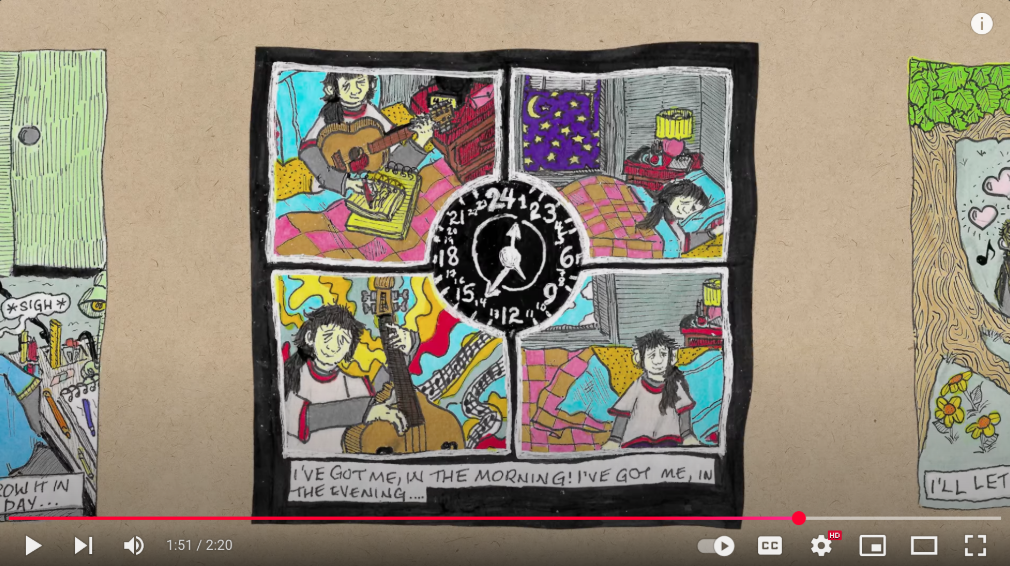Watch the video for the song “I’ve Got Me” by Joanna Sternberg.
The following activities and questions are designed to help your students use their noticing skills to move through the poem and develop their thinking skills so they understand its meaning with confidence, using what they’ve noticed as evidence for their interpretations. Read more about the framework upon which these activities are based.
-
Warm-up: Think about an important time in your life. Who were you before this time? Who are you now? What advice would you give your past self? Make a list of your advice, and if you feel comfortable, share one piece with a partner.
-
Before Reading the Poem: Watch the video for the song “I’ve Got Me” by Joanna Sternberg. What words/phrases from the song stand out? Why?
-
Reading the Poem: Silently read the poem “Note to Self Work” by Beau Sia. What do you notice about the poem? Note any words or phrases that stand out to you or any questions you might have.
-
Listening to the Poem: Enlist two volunteers and listen as the poem is read aloud twice. Write down any additional words and phrases that stand out to you.
- Small Group Discussion: Share what you noticed about the poem with a small group. How might the poem relate to the song? What do you think of the title “Note to Self Work”? How do the title and the first line, “get there before sundown” connect? What does each stanza say about “self work”? What does “self work” mean to you? What does it look like in your own life?
-
Whole Class Discussion: What do you think of the anaphora “beat the drum”? How does the repetition change over the course of the poem? What do these lines mean to you: “who you were before / that season you’ve forgotten”? Think about the current season. What do you want to write about this season? If you feel inclined to share, how might this connect to what you wrote about during the warm-up?
-
Extension for Grades 7-8: Think back to the writing that you did at the beginning of class and the advice you gave yourself. Write a poem in the form of advice that answers this question: “who [were] you before / that season you’ve forgotten”? Or, write advice to a friend or loved one. What might they need to hear? Share your poem with your classmates.
-
Extension for Grades 9-12: Write a letter to your future self. What do you want to tell yourself? What goals do you have for your future? How do you see your life? Ask a friend or teacher to hold onto your letter, or use this website to write a letter to yourself which you can receive on the date of your choice. After writing, share with your classmates what you learned about yourself during the writing of your letter.
“One of the most vital and energetic movements in poetry during the 1990s, slam has revitalized interest in poetry in performance. Poetry began as part of an oral tradition, and the Beat and Negritude poets were devoted to the spoken and performed aspects of their poems.” Read more about slam poetry with “A Brief Guide to Slam Poetry.”
Anaphora refers to a poetic technique in which successive phrases or lines begin with the same words, often resembling a litany.

